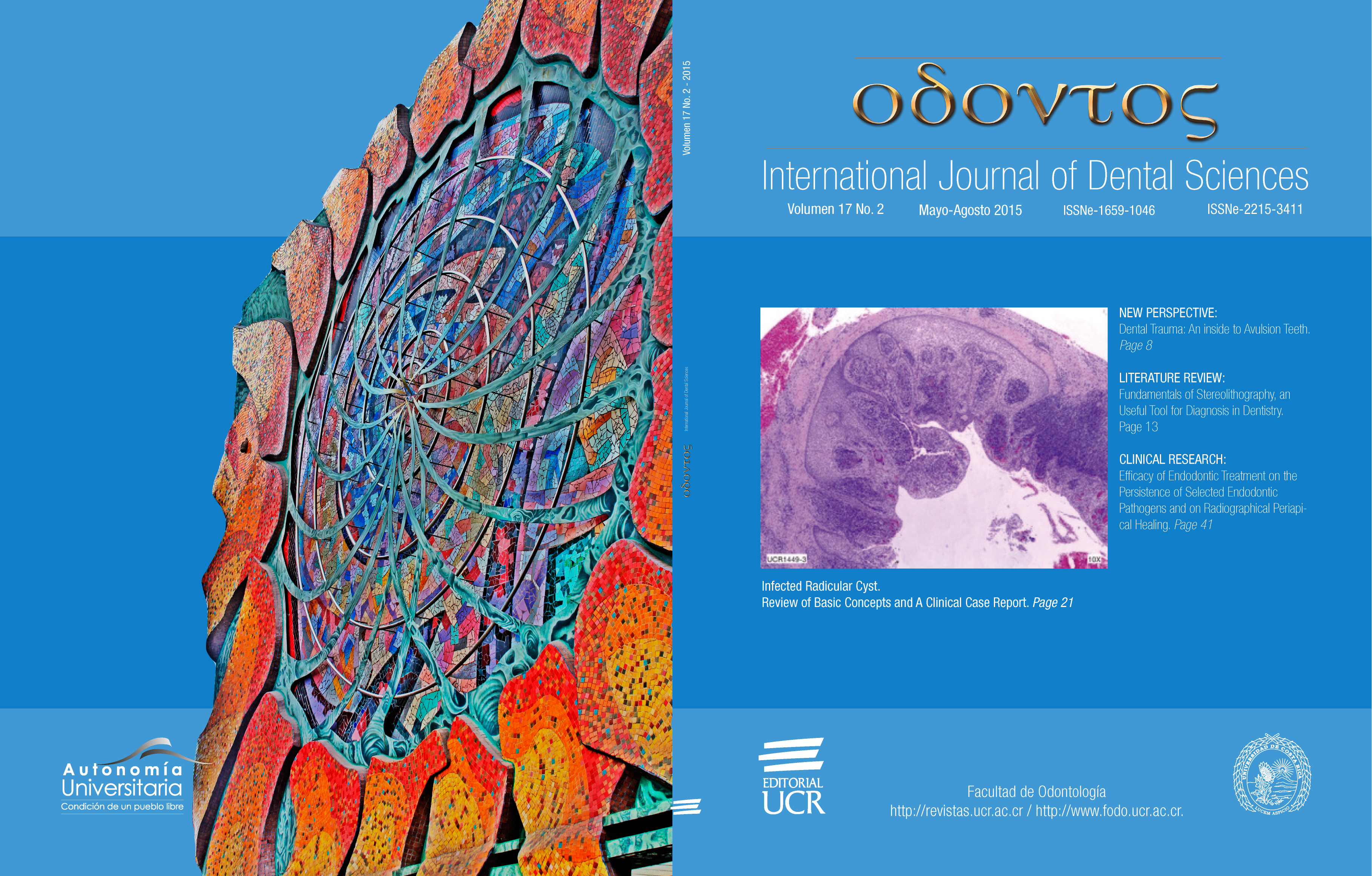Abstract
The objective of this clinical study was to evaluate by polymerase chain reaction (PCR) the antimicrobial efficacy and the outcome of an endodontic protocol treatment (EPT) performed by under-graduated dental students on infected root canals associated with periapical lesions. Fifty-six patients attending for treatment of pulp necrosis and apical periodontitis were included. A specific EPT approach was performed and DNA extracts were taken at the baseline (S1), after a disinfection-neutralization procedure (S2), post-chemomechanical preparation (S3) and after Intracanal medication (S4) for the presence of specific bacteria. The outcome of the EPT was assessed radiographically using the Periapical Index-system (PAI) after 18-month follow-up. An intergroup evaluation shows that when comparing S1 to S3, S1 to S4, S2 to S3, and S2 to S4, the presence of bacteria were significantly reduced (P < 0.05). Finally, S4 was not significantly reduced when compared with S3 (P > 0.05). The most prevalent species in their respect order were Actinomyces Israelii > Enterococcus Faecalis > Fusobacterium Nucleatum/Prevotella Nigrescens > Phorphyromonas Endodontalis. After the 18-month follow-up, the overall success rate of root canal – treated teeth was of 88% (PAI 1 or 2). This In Vivo study demonstrated that EPT significantly reduced the number of cases with positive results for the studied bacteria, showing a profound positive impact in the outcome of endodontic treatment of teeth diagnosed with Pulp Necrosis and Apical Periodontitis.


